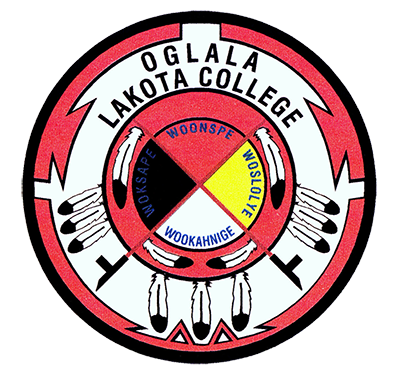
“Faculty and staff are now looking beyond the course vetting for distance learning approval, to viewing the processes as an ongoing improvement process by which teaching and learning experiences can be enhanced.”Dr. Shannon Amiotte, Dean of Education, Oglala Lakota College
One new QM member has hit the ground running with investment in its faculty’s understanding of quality practices — and is already seeing the results. Oglala Lakota College (OLC), one of 35 accredited tribal colleges and universities, serves the people of the Oglala Lakota Nation with 11 college centers on the Pine Ridge Reservation, in the Rapid City area, and on the Cheyenne River Reservation in western South Dakota. The institution was an early adopter of digital learning, using video conferencing to conduct classes between campus centers as early as 1996. It began incorporating digital learning as a major element of its institutional strategy after pandemic-era emergency learning demonstrated the possibilities of these modalities, becoming a QM member in June 2022.
As a new QM member, OLC wasted no time in kick-starting its quality assurance efforts, initially focusing on faculty professional development. When the institution offered the Applying the Quality Matters Rubric (APPQMR) workshop to its faculty on a voluntary basis, the staff responded eagerly. As of February 2024, 32 faculty — more than half of the institution’s full-time staff — had completed the APPQMR workshop, including at least one faculty member from each of the institution’s departments. The institution’s Vice President for Instruction, academic department chairs, and Instructional Technology Director have also completed the workshop. “Faculty engagement is a testament to their commitment to design and deliver quality distance learning courses,” says Dr. Shannon Amiotte, Dean of Education.
The impact of this investment is already being felt across OLC’s campus. The institution has noticed the establishment of a common knowledge base surrounding course design across faculty, particularly with regard to alignment and accessibility standards. “Faculty who’ve completed QM workshops have begun developing curriculum maps to strengthen course design and make the connections between learning objectives, instructional materials, course technology, learning activities, and assessments more transparent for students,” says Shannon. Student satisfaction with distance learning course design has also increased. Learner course evaluations reveal notable gains in ratings related to the use of activities and materials to motivate learning, ease of navigation, interaction with other learners as part of course activities, connecting with others whose backgrounds are different from one’s own, and overall course format. On a five-point scale, all student ratings are above 4.0.
These metrics and improvements are indicative of a sea change in the institution’s online approach. “Faculty and staff are now looking beyond the course vetting for distance learning approval, to viewing the processes as an ongoing improvement process by which teaching and learning experiences can be enhanced,” says Shannon. And OLC’s work in quality is only beginning. Two faculty and staff members recently completed the APPQMR and Improving Your Online Course facilitator training, four faculty and staff members have completed the Peer Reviewer course, and OLC plans to support additional faculty in becoming certified Peer Reviewers. At least one academic department has plans to submit coursework for official QM Review, and the institution hopes to eventually conduct its own subscriber-managed official QM Reviews. The QM community looks forward to seeing what the future holds for OLC as it continues to invest in quality.
